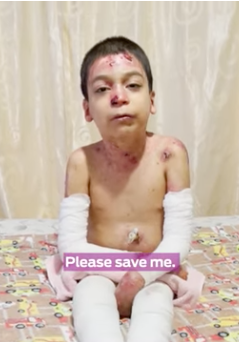Kent Vice says that his granddaughter, Brianna, had not been feeling great for a couple of days, but that his family didn’t think that anything was wrong at first. Brianna had a bit of a fever, but in terms of serious symptoms she seemed just fine. All of that changed in an instant.
After a couple of days, the small girl was throwing up and the family knew something was wrong. Brianna’s parents, Brian and Stephanie Florer, raced their child to the hospital. However, in a tragic turn, it was already too late for her. Brianna passed away from digesting a button battery that had leaked its toxic chemicals into her system. Doctors think that she accidentally ate the battery around a week before being rushed to the hospital.
According to data from the National Capital Poison Center in Washington, D.C., “from 2005 to 2014, there were 11,940 battery-swallowing incidents involving children under the age of 6 nationally. Of those cases, 15 children died, and another 101 suffered major medical problems.”
All of these create problems. However, in some cases they can become “stuck” and release chemicals that can cause very serious and life-threating injuries.
A button battery that becomes stuck in the esophagus can create serious tissue damage. According to Poison Control, “an electrical current can form around the outside of the battery, generating hydroxide (an alkaline chemical) and causing a tissue burn. When a battery is swallowed, it is impossible to know whether it will pass through or get ‘hung up’.”
Serious symptoms and complications can also be experienced if the tiny batteries are put next to the nose or ear.
If you think that your child has eaten a battery, here is what you should do:
Call the National Battery Ingestion Hotline immediately at 800-498-8666 (or 202-625-3333)
If at all possible, locate the battery identification number on the packaging or a matching battery.
An x-ray will most likely need to be performed, so do not induce vomiting, eat, or drink until the x-ray has determined the battery has passed the esophagus.
If advised by the hotline to stay and watch the progress, keep an eye out for fever, stomach pain, vomiting or blood in the stools until you’re certain the battery has passed.
Seek medical attention immediately if any of these symptoms occur.








